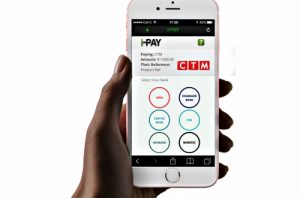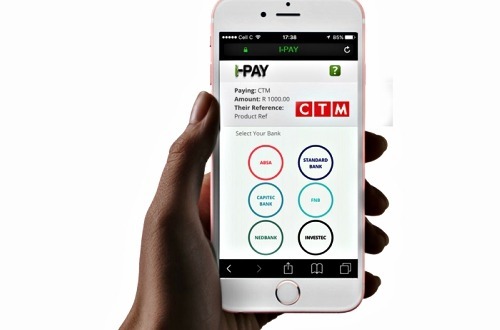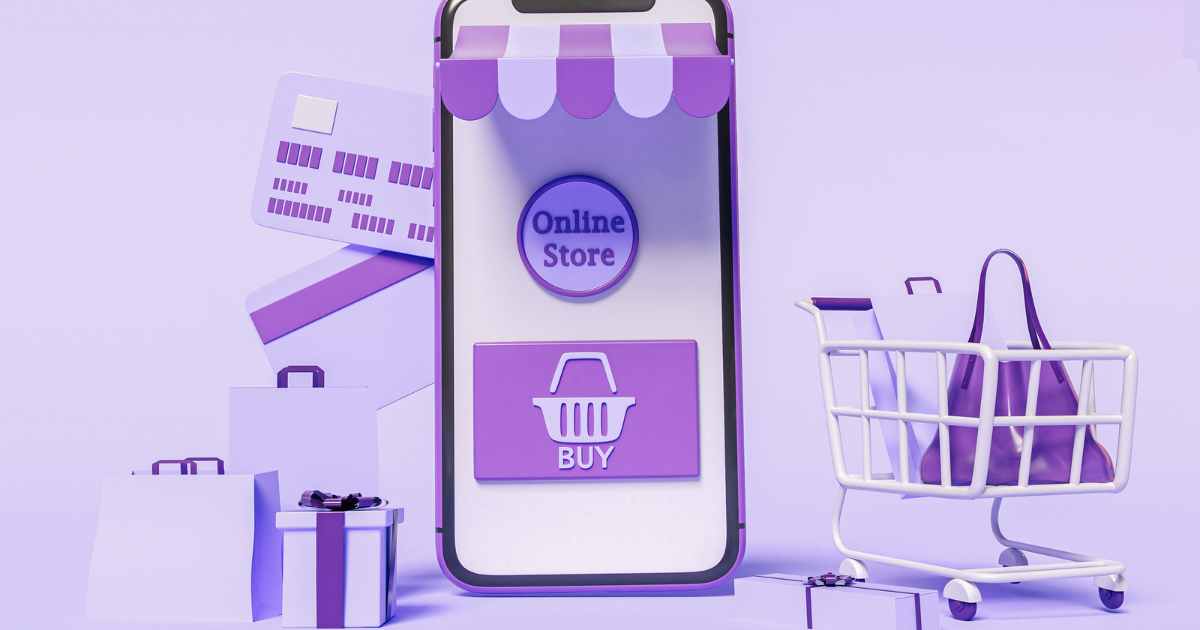
From retail giants to small independent brands, everyone is trying to get a foot in the e-commerce market.
One startup that is cashing in on the e-commerce boom is EFT payment gateway, i-Pay. They have just signed up the likes of takealot.com, Nespresso, Groupon, iStore and Incredible Connection onto their platform.
As a result, the startup that was only launched in 2014 has just reached a significant milestone of a 500% increase in the amount of transactions through the gateway in the first nine months of 2016. i-Pay has also recently secured an undisclosed amount in their first round of venture capital funding.
Riding the e-commerce wave
The local e-commerce sector has had more than its fair share of challenges, from weak internet connectivity and ineffective offline user experience to funding and stiff competition. However, the sector is set for growth in the coming years.
Online retail in South Africa has maintained a growth rate of above 20% since the turn of the century, and according to the Online Retail in South Africa 2016 report, released by World Wide Worx earlier in the year, the rate of growth was 26% in 2015, taking online retail to the R7,5-billion mark. Although the rate is expected to fall to 20% in 2016, in Rand terms, growth is expected to remain the same as in 2015, taking the total to above R9-billion.
As impressive as the numbers sound, e-commerce in the country has only recently passed the 1% mark in terms of its share of total retail. Total retail is hovering close to the R900-billion mark.
This, in essence, means the potential for great success for local e-commerce startups is still high. This is where startups such as i-Pay have pegged their bets, and it is proving to pay off in a big way.
i-Pay, a Johannesburg-based online payment gateway startup, is one of those startups that are seeing success with their EFT-based payments solution.
Buy instantly without a credit card – How it works
i-Pay is an instant EFT payment service that makes it possible to transact with online merchants without the use of a credit card. The gateway allows for instant payment on all smart mobile and desktop devices and payments can be made via SMS, Email, QR Code or via Push Payments.
The solution ensures customers can make secure online payments directly into a bank account in real-time, according to their press release ‘making EFT transactions not only faster than paying by credit card, but also less costly for merchants’.
The implication of this for businesses is significant, says Thomas Pays, co-founder and CEO of i-Pay. This is because the i-Pay payment gateway can handle in-store transactions and can also be integrated in e-commerce stores, he says.
The service also offers an eBilling system, which offers customers a way to pay directly after opening an invoice, or Push Mobile Payments, which are sent to a customer’s phone, allowing them to settle payment directly from there.
SME South Africa speaks to i-Pay’s founder and CEO on how they have managed to reach exceptional growth despite stiff competition and why they chose the EFT market to focus on.
IMAGE SUPPLIED
Thomas Pays, co-founder and CEO of i-Pay.
Solving the EFT challenge
Becoming an entrepreneur and building a business is often about identifying a problem that the newly established business can help solve. The manual EFT process is incredibly cumbersome and this is the problem that we identified as an opportunity. It quickly made us realise that there was a gap in the market to solve this problem and this presented us with a chance to answer the need. This is how i-Pay was established.
Essentially, i-Pay is mending the broken link that exists between convenience and payment and this is what drives our business success – solving a problem.
Importantly, the EFT payments market is probably one of the niche markets that are the least saturated, compared to the credit card market.
Taking on the incumbents
When you are a startup participating within the ecommerce industry, you need to make sure that you are innovative, and that you answer a need. I believe that i-Pay does both, which is the reason for its success.
Further validation of this is the fact that large, global payment service providers are becoming resellers of ours because of these same reasons.
The pay off for focusing on EFT
[Putting the e-commerce platform on hold and re-directing our focus to the EFT system] was one of the biggest decisions, in the sense that we never realised the impact it would have in the long term. The short term impact was that it didn’t take us six months to be successful, it actually took many years for us to gain traction.
Ecommerce is an over-crowded and over-saturated industry, compared to EFT services which are a lot more in demand and with less solutions available in the market. However, when you look at the growth opportunity between ecommerce and EFT payments, the potential for success is significant.
Importantly, our gut and our belief was that if leaders in this industry showed an indication of interest and faith in it, then we should definitely take it into consideration. This encouragement and interest from the industry helped drive our motivation too.
Targeting the right market with the right solution
We often get asked questions about who our client base is, our target market etc.
Our answer is simple, “Anyone who wants to accept payment”. When you deal in payments, like we do, everyone is our client ultimately.
The right focus helped us solve the distribution problem
Without the support of our partners and resellers it would have taken us a lot longer to gain traction.
The fact that we focused mainly on developing disruptive and innovative tech, as opposed to focusing on sales – which was done through our partners – made it quicker and easier for us to get to where we are today. It has been a challenging road though.
Gaining traction
If you are talking about how long it took us to gain momentum in terms of getting clients, processing transactions, etc. we only really started to make that happen in the past year– in the sense that, when you talk about the financial industry, it is very conservative, it is all based on creditability and authority. Until you build that, you aren’t going to get traction no matter who is behind you.
The biggest challenge for us is that we are so disruptive, with a very simple solution. People often don’t understand our solution and they tend to over complicate it. They don’t seem to believe that it is possible to do an EFT transaction in three clicks – until the day they end up using it.
Reaching the 500% transactions milestone
As a startup we are constantly focused on optimisation and improving our software to provide a better user experience for our clients. We are also constantly optimising the admin interface for our merchants – we are currently on version 8 of the platform, and with every version, we are able to improve further.
So, ultimately, this is the biggest factor that has helped our business, combined with constantly nurturing the good relationships that we have with our resellers.
Next target is taking over the globe
The first thing is establishing a roadmap and a plan to achieve this [being present in one hundred countries in the next five years]. We have been receiving the help of Ernest & Young’s Vantage Program, which has enabled us to create the next five years goals in order to achieve our target.
Initially our plan would be to follow or replicate what other global players have done. If you look at Uber, they set up structures to guarantee their success. In our case, it will also be extremely important to ensure that we find the right partners in order to reach those goals.
The local e-commerce environment and its potential to grow
If you look at e-commerce businesses like Takealot and Spree, it illustrates that there is huge opportunity to build large e-commerce offerings with corresponding ecosystems too. An example of this is Takealot. When the online retailer experienced rapid growth, it required a supporting delivery service. Takealot started working with Mr Delivery for its deliveries, and this is how Takealot actually went on to acquire the business.
The e-commerce industry is still in its infancy as the majority of people in South Africa don’t have internet access, and a large part of the population don’t have the required buying power either. I do believe that we are going to have to wait approximately five years to see the true potential of e-commerce in Africa. The South African infrastructure is well established and this is great encouragement for the continued development of the local e-commerce market.






